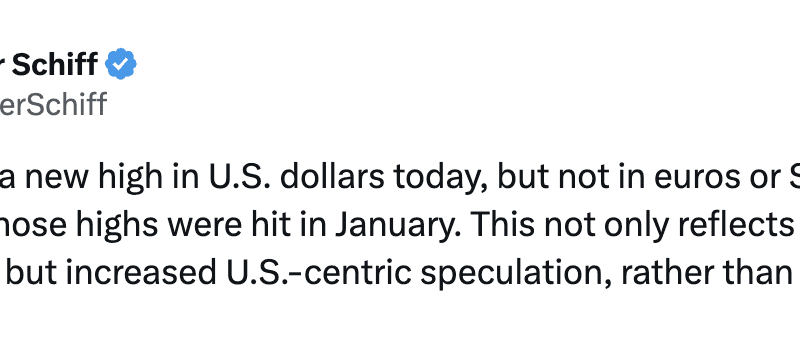Satoshi Action Fund rebut ECB Bitcoin critique, highlighting flaws in recent analysis
Bitcoin proponents have issued a detailed rebuttal to a European Central Bank (ECB) paper that criticized its viability and economic impact. In the working paper by ECB officials Ulrich Bindseil and Jürgen Schaaf, Bitcoin is described as a speculative asset lacking intrinsic value, contributing to wealth concentration, and failing to enhance economic productivity.
Researchers Dr. Murray A. Rudd and Dennis Porter from Satoshi Action Education, Allen Farrington from Axiom, and Freddie New from Bitcoin Policy UK challenge these assertions, arguing that the ECB’s analysis overlooks Bitcoin’s technological innovations and societal benefits.
They contend that Bindseil and Schaaf misunderstand Bitcoin’s evolution and misrepresent its foundational purpose. According to Rudd and his co-authors, Bitcoin’s decentralized store of value design aligns with Satoshi Nakamoto’s original intent, contrary to the ECB officials’ claims.
The rebuttal addresses the assertion that Bitcoin’s wealth is highly concentrated among a small number of holders. The authors argue that this view ignores the widespread distribution of Bitcoin holdings globally by institutional and retail investors. They point out that large wallets often belong to exchanges and funds holding assets on behalf of numerous clients, reflecting diverse ownership rather than concentration.
Disputing the claim that Bitcoin’s rising price does not contribute to economic productivity, the researchers highlight its role in driving financial innovation. They cite advancements in cryptography, energy efficiency, and decentralized finance solutions like the Lightning Network, which facilitates faster and cheaper transactions. These developments, they argue, contribute to economic growth by fostering technological progress and increasing financial inclusion.
Rudd’s team also challenges the ECB paper’s stance that Bitcoin lacks intrinsic value due to the absence of cash flows or traditional asset valuation models. They assert that Bitcoin’s value derives from its scarcity and security and functions as a hedge against inflation and currency debasement, similar to gold’s role in the financial system.
The rebuttal questions potential biases in the ECB officials’ analysis, noting that both Bindseil and Schaaf are involved in developing Central Bank Digital Currencies (CBDCs). The authors suggest this involvement may influence their portrayal of Bitcoin and the promotion of CBDCs as superior alternatives. They express concern that the ECB paper’s focus on US political forces extends beyond neutral academic analysis, potentially aiming to influence public opinion and policy.
As previously reported by CryptoSlate, ECB economist Jürgen Schaaf raised concerns about Bitcoin’s societal impact, arguing that its price appreciation benefits early adopters at the expense of others. The rebuttal counters this by emphasizing Bitcoin’s voluntary and open market nature, where participants choose to engage based on their assessment of its potential.
The researchers further dispute the characterization of Bitcoin’s volatility as indicative of speculative bubbles. They argue that volatility is expected in emerging technologies and asset classes during early adoption phases. The rebuttal highlights Bitcoin’s resilience and continued growth despite regulatory pressures and historical attempts to restrict it.
Concluding their critique, Rudd and his co-authors assert that the ECB paper’s methodological weaknesses and potential conflicts of interest undermine its credibility. They emphasize the need for objective analysis in discussions about Bitcoin’s role in the global economy.
The post Satoshi Action Fund rebut ECB Bitcoin critique, highlighting flaws in recent analysis appeared first on CryptoSlate.

